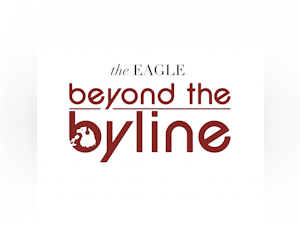From: District Wire
Mayor’s plan for police body cameras gains criticism from information advocates
Packed house in 412 for @kenyanmcduffie's Committee on Judiciary hearing on body-worn cameras. pic.twitter.com/JLvKpDV2LO
— CM McDuffie's Office (@CM_McDuffie) October 21, 2015
Mayor Muriel Bowser’s proposal for a police body camera program drew derision from representatives of the press and support from advocates for domestic assault victims at a D.C. Council hearing last week.
Although there was widespread support for using body cameras at the Oct. 21 hearing, there was very little consensus between witnesses on one key issue: public access to video footage.
Bowser’s proposal would retain footage taken inside of a private home to only those involved in a case, such as the people recorded in the video, prosecutors and attorneys. Though this is a step back from the mayor’s initial stance of keeping all footage away from the press and public, advocates like Robert Becker from the Society of Professional Journalists are pressing for more access.
“[The] proposal would unnecessarily delay, make it more difficult for requesters and impair public access under [the Freedom of Information Act],” Becker said. A provision in the plan would give the Metropolitan Police Department up to 45 days to complete a FOIA request, rather than the typical requirement of 15 days.
Meanwhile, representatives of domestic and sexual assault victim support groups advocated for more stringent restrictions on when body camera footage is released.
“The District should consider adopting a policy that limits capture of victim interactions with police by requiring officers to pause cameras or record in audio only while recording victim interviews in cases of domestic violence, sexual assault and stalking,” said Tamaso Johnson, a policy attorney for the DC Coalition Against Domestic Violence.
There was some consensus between witnesses on striking one particular word in the Public Access to Body-Worn Camera Video Amendment of 2015: “assault.” The bill defines assault as an “unwarranted invasion into personal privacy” and thus any video of an assault would be ineligible to be released to the public. Witnesses argued that provision might prevent footage of situations such as police brutality from being made public.
“The inclusion of the word ‘assault’ clearly renders the exemption vastly overbroad and it would seemingly bar release of BWC footage in virtually every controversial case involving police use of force,” said James McLaughlin, deputy general counsel for the Washington Post.
Chair of the Judiciary Committee, Councilmember Kenyan McDuffie (D-Ward 5), shared McLaughlin’s view. “The proposal includes exemptions to FOIA for all assaults, which I find problematic,” McDuffie said.
Deputy Mayor for Public Safety Kevin Donahue hopes the proposal will go through and serve as a model for other jurisdictions implementing police body camera programs.
“We believe our proposal strikes a proper balance between broad public access and protecting basic privacy rights,” Donahue testified as he sat alongside MPD Chief Cathy Lanier.
If passed, a package of bills before the D.C. Council will expand an existing pilot program that was started last June and bring 2,800 body cameras to officers within 2016. Since June, MPD has used 400 body cameras in the Fifth and Seventh Police Districts, which encompass large portions of Northeast and Southeast D.C. In late September, the city announced it received a $1 million grant from the Obama administration to expand the program.
Councilmembers heard testimony from over twenty witnesses, including members of the general public. Public witness Katie Bell argued that the body cameras should never be turned off.
“It would only take one incident where a citizen is assaulted...and then suddenly there is no video to completely destroy all of the trust that this program is hopefully going to increase between the community and the police,” Bell said.



